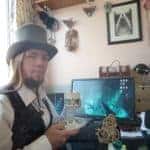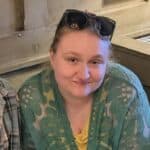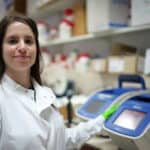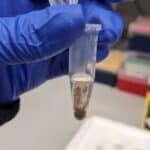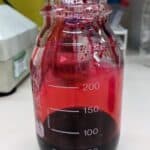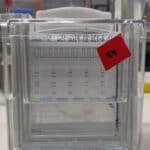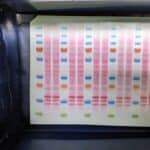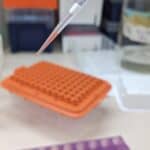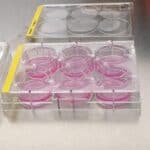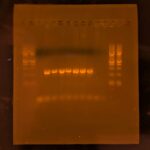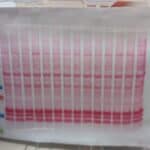Profile
Marta Oliveira
-
About Me:
My name is Marta, I’m a Portuguese living in London and I’m a research scientist in a lab. In my free time, I love horse riding, reading and watching TV and finding new trails to hike.
-
Read more
Hi there!
My name is Marta and I’m a research scientist in a real-life lab.
I did my schooling and University education in Portugal, then I moved to London after completing my PhD to further understand how our genes work at the molecular level. In my free time, I love horse riding, reading and watching TV and finding new trails to hike.
I’m passionate about what I do, so if you’re curious about what it’s like to study biology/biochemistry, what’s it like to work in a research lab and/or pursue a career in academia, I am happy to answer any questions you have!
-
My pronouns are:
she/her
-
My Work:
I study the sneaky ways HIV uses to convince our cells to do its bidding.
-
Read more
-
My Typical Day:
I am a night owl, so my work schedule is usually 10am-7pm. I start my day with breakfast around 9am. I arrive at the lab around 10, lunch is at 1pm with my lab mates and a recharge around 5pm is also usually necessary. I tend to leave around 6.30-7pm.
-
Read more
Working as a wet lab scientist is really cool, because there’s actually no set routine that you follow. Every day is different! And you have the flexibility of doing your own schedule too. I, for instance, prefer to start working a little later in the day, around 10-11am.
(This also allows me to escape the craziness that is the London tube during the morning rush hour.)
My first hour at work usually involves prepping. I go over my to-do list for the day, check and double-check I have all I need, prep the things that need prepping and then I’m off to do experiments.
Experiments are sometimes tricky. Sometimes, when you start one, you cannot stop until the very end even if it takes you 6 hours. Other types of experiments are very flexible and chill. This dictates when I’m able to have lunch.
I use my afternoons to analyse data, which in fact takes longer than performing the experiment itself. This usually involves computer work and excel files and many, many, MANY graphs. Then the fun begins: I need to understand what all these graphs mean 🙂
Every week, I’m also required to go to a couple of meetings, update my boss on my progress and attend seminars about other people’s work, which also requires me to fit these in around my experiments and analysis.
-
What I'd do with the prize money:
I’d like to use the prize money as a “travel allowance” so students could come to my lab and see how science in real life works vs. what is shown in movies and TV shows. In the latter example, everything is colourful and obvious and happens very fast. Real experiments in a real lab are just as exciting, but they work quite differently and require a lot more planning!
I’d love to have students participate in the planning stages of an experiment, which can be done via one of our chats, then come visit to see it come to fruition over a few days, complete with seeing cells under the microscope, extracting proteins and then detecting them, and finish by analysing the results, which can also be done in a chat.
-
Education:
I’m Portuguese, so the terms will differ from what you’re used to 🙂
I graduated high school at 17 with an average of 18.05/20 values.
I have a Bachelor’s and Master’s Degrees in Biochemistry from the Faculty of Sciences, University of Porto, Portugal.
I then pursued a PhD in Molecular and Cellular Biology from the Institute of Biological Sciences Abel Salazar, University of Porto, Portugal.
-
Qualifications:
Bachelor’s and Master’s Degrees in Biochemistry from the Faculty of Sciences, University of Porto, Portugal.
PhD in Molecular and Cellular Biology from the Institute of Biological Sciences Abel Salazar, University of Porto, Portugal.
-
Work History:
I’ve looked into how different treatments of a nasty autoimmune disease called Lupus impact your white blood cells for my Bachelor’s degree. This disease is usually treated using corticosteroids, but this medication unfortunately has side-effects, such as DNA damage in white blood cells. Finding the right dosage that doesn’t damage your white blood cells is important.
During my Master’s, I studied cancer in an unusual way. I found that some medicinal mushrooms had anti-cancer effects when I exposed cancer cells to these mushroom extracts, so the conclusion (in the veeery long run!) would be to include these mushrooms in our diet so they’d fight the cancer cells for us prophylactically.
My PhD project focused on the gene regulation of one specific gene important for cell division in fruit flies (those tiny little flies that love to buzz around your fruit bowl, you know?). I found that this gene produces one protein and this depends on a tiny regulatory sequence in its mRNA, the blueprint that makes the protein. If the cell needs more of this important protein, the regulatory sequence will be used to produce more of it. If not, the regulatory sequence is hidden and there’s less protein.
-
Current Job:
Research fellow (see My work for a description)
-
Employer:
UCL
-
My Interview
-
How would you describe yourself in 3 words?
Epigeneticist and budding virologist
What did you want to be after you left school?
Mad scientist (nailed it!)
Were you ever in trouble at school?
Nope
If you weren't doing this job, what would you choose instead?
Sci-fi writer
Who is your favourite singer or band?
That changes monthly! But right now, Muse
What's your favourite food?
Roasted lamb with roasted potatoes and chestnuts
If you had 3 wishes for yourself what would they be? - be honest!
Infinite luck so all my experiments worked the first time around, win the lottery and be able to adopt a huge clowder of cats and the ability to teleport so I could live in Portugal, my homeland, and work in London, where the cool science is :)
Tell us a joke.
"Garfield, you need to get in shape!" "But I am in shape! Round is a shape!"
-



